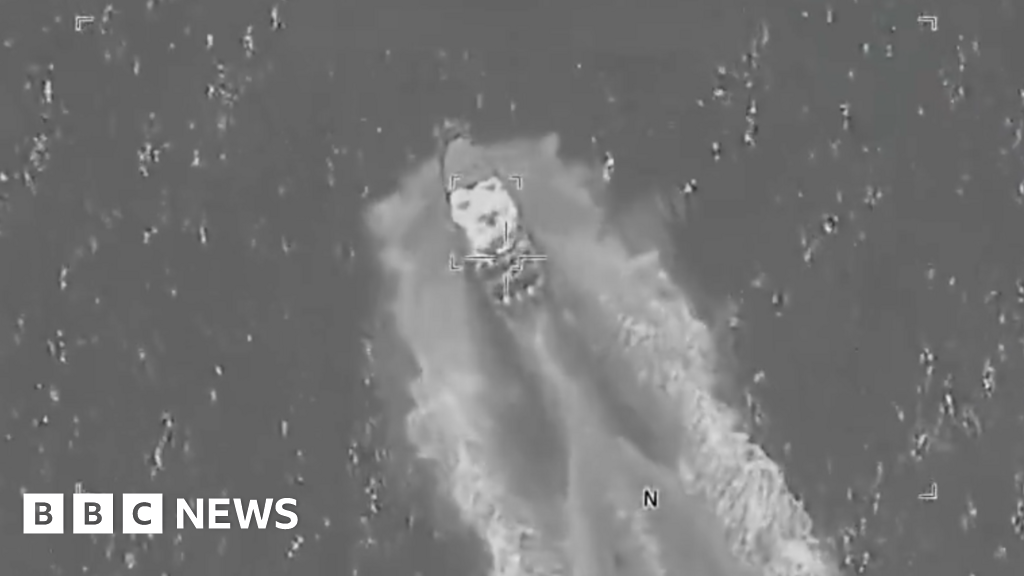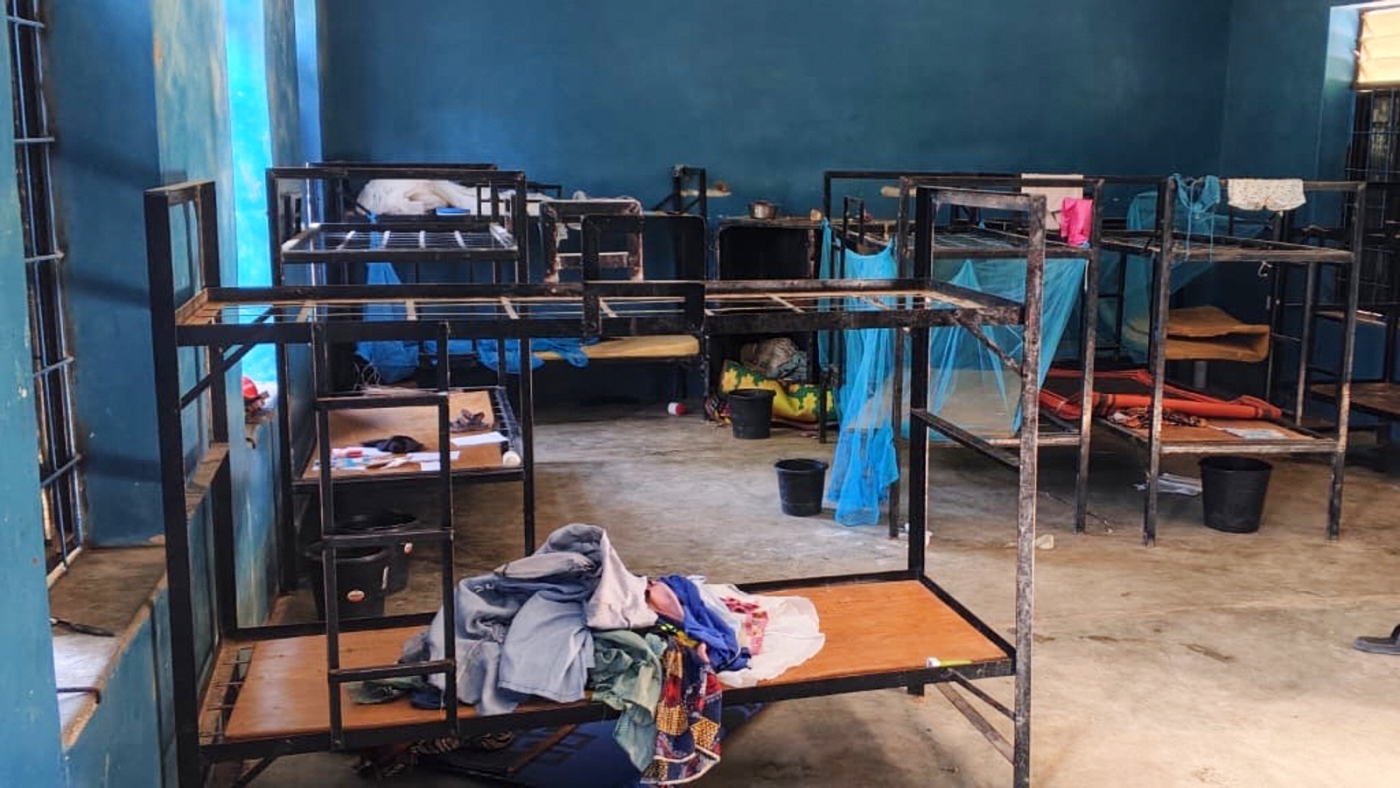 A Community Health Worker in a door-to-door campaign to vaccinate people in communities in Nanyamba village, Mtwara Region, in southeastern Tanzania. Credit: Kizito Makoye/IPS
A Community Health Worker in a door-to-door campaign to vaccinate people in communities in Nanyamba village, Mtwara Region, in southeastern Tanzania. Credit: Kizito Makoye/IPSDAR ES SALAAM, Tanzania, October 28 (IPS) - When COVID-19 hit Tanzania in 2020, Alfred Kisena’s life was torn apart. The 51-year-old teacher still remembers the night he learned that his wife, Maria, had succumbed to the virus at a hospital in Dar es Salaam. He wasn’t allowed to see her in her final moments.
“The doctors said it was too dangerous, and the virus was contagious,” Kisena said, gazing at a faded photo of her hanging on the wall.
Maria’s burial took place in eerie isolation. Municipal workers dressed in white protective gear lowered her body into a tomb at Ununio Cemetery on the city’s outskirts.
“Saying goodbye to a loved one is sacred, but I didn’t get a chance,” he said.
Across Tanzania, many families endured the same pain—losing loved ones and being denied the rituals that give meaning to loss. The government imposed strict measures: banning gatherings, restricting hospital visits, and prohibiting traditional burial rites. Schools shut down, and for three months, Kisena’s five children stayed home, their education abruptly halted.
“I was not working, so it was hard to meet the needs of my family,” he said. “We survived on the little savings I had.”
Five years later, as the scars of that crisis linger, Tanzania is charting a new path toward resilience. Earlier this month, the government launched its first-ever Pandemic Fund Project, aimed at strengthening the country’s capacity to prevent and respond to health crises.
Supported by a USD25 million grant from the global Pandemic Fund and USD13.7 million in co-financing, the initiative marks a shift from reactive crisis management to proactive preparedness. It unites local and international partners—including WHO, UNICEF, and FAO—under a “One Health” framework that recognizes the interconnectedness of human, animal, and environmental health.
Learning from the Past
The memories of COVID-19 and the more recent Marburg outbreak remain vivid. When the pandemic first struck, Tanzania’s laboratories were under-equipped, surveillance systems were weak, and community health workers were overwhelmed.
Tanzania’s Deputy Prime Minister, Doto Biteko, said during the launch that the lessons from those crises shaped the country’s new determination.
“For the past 20 years, the world has battled multiple health emergencies, and Tanzania is no exception,” he said. “We have seen how pandemics disrupt lives and economies. Strengthening our capacity to prepare and respond is not optional—it is a necessity.”
That necessity has only grown as Tanzania faces rising risks of zoonotic diseases linked to deforestation, wildlife trade, and climate change. The new project aims to address these vulnerabilities by upgrading laboratories, expanding disease surveillance, and training health workers across the country.
The Human Frontlines
In southern Kisarawe District, 38-year-old community health worker Ana Msechu walks along dusty roads with a backpack containing medicine, gloves, and health records.
“Sometimes I walk for three hours just to reach one family,” Msechu said. “During the pandemic, people stopped trusting us. They thought we were bringing the disease.”
With no protective gear or transport allowance, Msechu faced villagers’ suspicion head-on. At the height of the pandemic, she lost a colleague to the virus. Yet she continued, delivering messages about hygiene and vaccination.
“Sometimes we didn’t even have masks—we used pieces of cloth instead,” she recalled.
The new initiative, she believes, could change that. Implementing partners plan to supply personal protective equipment (PPE), digital tools for data collection, and regular training sessions.
“If we get proper support and respect, we can save many lives before diseases spread,” she said.
“Community health workers are the backbone of resilience,” said Patricia Safi Lombo, UNICEF’s Deputy Representative to Tanzania. “They are the first point of contact for families and play a critical role in delivering life-saving information and services.”
UNICEF’s role will focus on risk communication and community engagement—ensuring that people in rural and urban areas understand preventive measures, recognize early symptoms, and trust the health system.
Between Fear and Duty
Hamisi Mjema, a health volunteer in Kilosa District, remembers how fear became his biggest enemy.
When the Marburg virus hit last year, his job was to trace suspected cases and educate families about isolation.
“I was insulted many times, and some families wouldn’t even let me into their homes,” he said.
Without transport or communication tools, Hamisi walked from one remote village to another with his bicycle, often relying on farmers to share their phone airtime so he could report cases to district health officials.
Under the new initiative, local health officers say community health workers will receive field kits, digital disease-reporting tools, and risk communication materials in local languages.
“It will make our work safer and faster,” he said. “When we detect something early, the whole country benefits.”
Fighting Misinformation
In a lakeside village in Kigoma, volunteer health educator Fatuma Mfaume recalls how rumors once spread faster than the virus itself.
“People were afraid,” she said. “They said vaccines would make women barren. Others believed doctors were poisoning us.”
Armed with a megaphone, Mfaume moved through villages trying to dispel falsehoods—often facing insults. But her persistence paid off. Slowly, women began bringing their children for immunization again.
With the new project, she hopes community workers like her will gain formal recognition and training in communication skills.
“Many of us work without pay,” Mfaume said. “If this project can train us properly and give us materials, we can fight not just disease but fear and lies too.”
Animal-Borne Threats
At the same time, the Food and Agriculture Organization (FAO) is strengthening animal health systems, recognizing that most pandemics originate from animals.
“By improving coordination between veterinary and public health services, Tanzania is taking vital steps to prevent zoonotic diseases before they spill over to humans,” said Stella Kiambi, FAO’s Emergency Centre for Transboundary Animal Diseases Team Lead.
These measures include upgrading veterinary laboratories, improving disease surveillance in livestock markets, and training field officers to detect early signs of outbreaks.
The World Health Organization (WHO) is also supporting efforts to strengthen human health systems—from expanding testing capacity to developing rapid response teams.
“This project marks a bold step forward in health security,” said Dr. Galbert Fedjo, WHO Health Systems Coordinator. “It advances a One Health approach that links human, animal, and environmental health.”
Rebuilding Trust and Hope
For Priya Basu, Executive Head of the Pandemic Fund, Tanzania’s project represents “an important step in strengthening the country’s preparedness to prevent and respond to future health threats.”
Across Africa, the Fund—established in 2022—has supported 47 projects in 75 countries with USD 885 million in grants, catalyzing more than USD 6 billion in additional financing.
According to the World Bank, every USD 1 invested in pandemic preparedness can save up to USD 20 in economic losses during an outbreak.
For Tanzania—a nation that lost thousands of lives and suffered deep economic shocks during COVID-19—the stakes couldn’t be higher.
“Preparedness is about saving lives and livelihoods,” said Dr. Ali Mzige, a public health expert. “It’s about making sure families don’t suffer when a pandemic strikes.”
For Kisena, the government’s new initiative is a quiet promise that the lessons of loss have not been forgotten.
“Maria’s death taught me how precious life is,” he said. “If this project can protect even one family from that kind of pain, then it will mean her death was not in vain.
IPS UN Bureau Report
© Inter Press Service (20251028061340) — All Rights Reserved. Original source: Inter Press Service

 1 month ago
18
1 month ago
18










 English (US) ·
English (US) ·